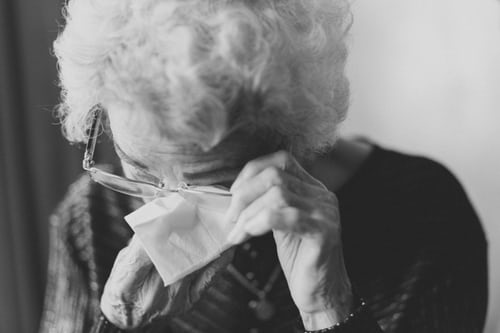I had to make a difficult phone call yesterday.
Last night, after a day of work and an evening church meeting, I called my aunt.
Normally I would look forward to calling her because I love chatting with her. We’re like-minded, she’s sharp, she has some great life stories to tell, and she’s got a great sense of humor. We’ve gotten really close over the past ten years, especially since the untimely death of her only daughter, Jan, who fought valiantly and then succumbed to ovarian cancer ten years ago.
But yesterday’s call was difficult because it was the 40th anniversary of the death of her son Jeff, my beloved cousin and Jan’s older brother, who was killed in a tragic car accident on the icy roads in Northern California—on his way south to their home near Anaheim, California, for Christmas.
It was a devastating day. And I called her to let her know I was thinking about her.
A mother never forgets those days. Decades don’t remove the pain and regret.
She knew what I meant when I told her I just wanted to let her know I was thinking about her. And she thanked me and told me she appreciated it.
Then we had a really nice chat. As we talked, her spirits seemed to perk up. We caught up, laughed and loved through the satellite connection.
It was a sweet time. But the reason behind our special connection on yesterday’s date, December 16, was heartbreaking.
Is someone in your circle suffering loss or grief?
Does someone you know need an “I’m thinking about you today,” call? Who do you know that’s been suffering a loss of a loved one, a divorce, an estrangement from a spouse, parent or child? Who around you needs to know that someone is thinking about them during this time of extreme joy and extreme loneliness?
Reach out and connect, some way, with them today. Even a simple call can do wonders for a grieving person’s spirit. On Christmas Eve, or Christmas Day. Make sure the grieving in your circle of friends or acquaintances are watched over and loved during the holidays.
NEXT WEEK: Helping you deal with your own grief during the holidays.
Until then, reach out and connect.
Blessings,
Andrea
Andrea Arthur Owan is an award-winning inspirational writer, fitness pro and chaplain. She writes and works to help people live their best lives—physically, emotionally, and spiritually.




